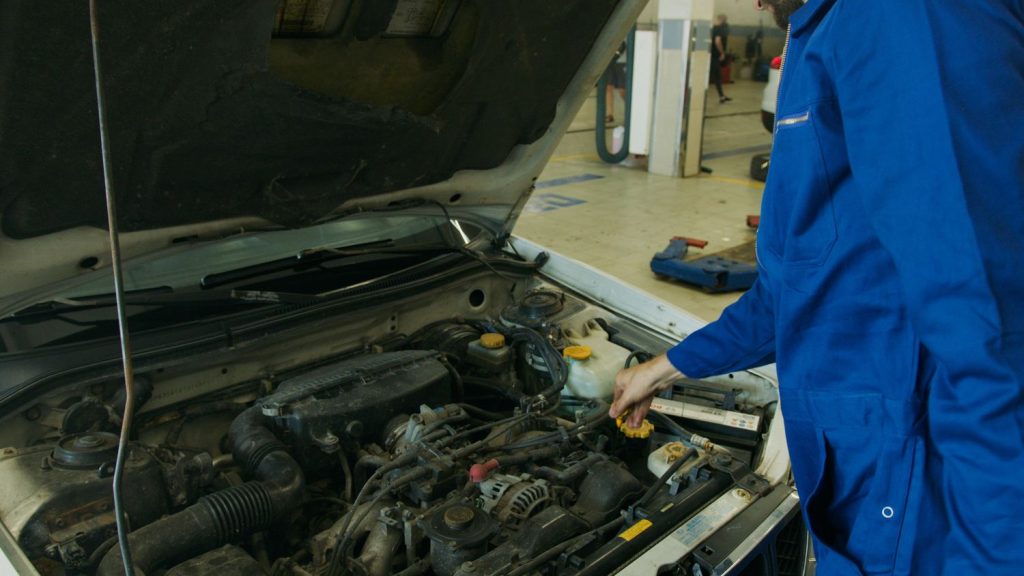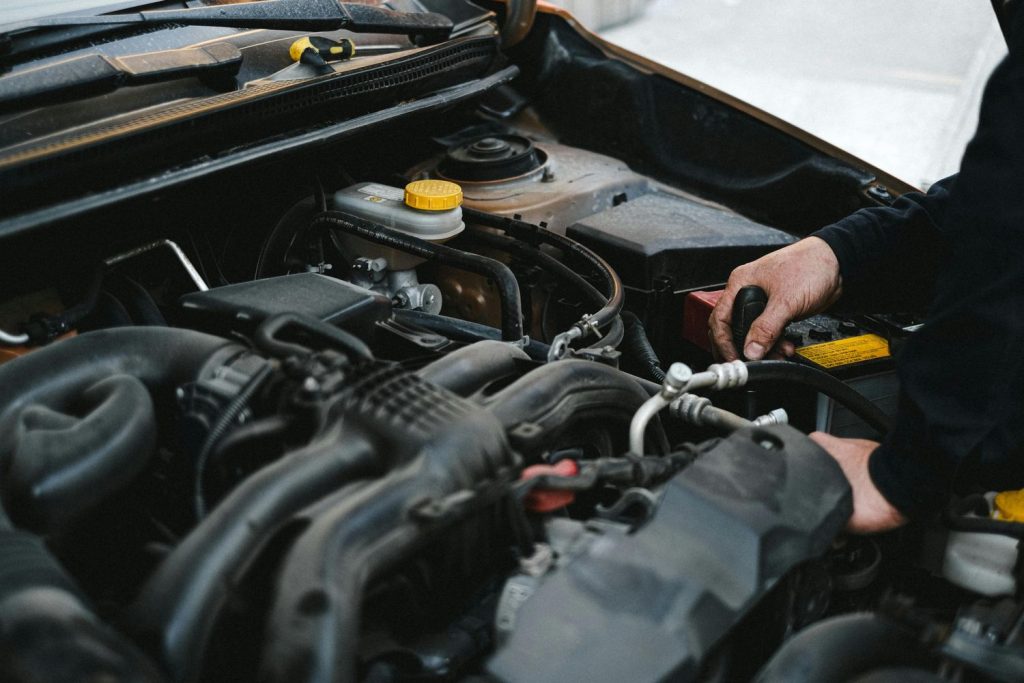Buying a used car isn’t just about finding the right make, model, or price—it’s about making sure you don’t end up with a lemon. If you’re in the Central Northwest, you’ve probably heard friends or neighbors ask the same question: do dealerships really inspect and repair their used cars before putting them up for sale?
The short answer is yes, but it’s more complicated than that. Dealerships have different standards, and not all inspections are created equal. In this article, we’ll break down what dealerships actually do, where they sometimes fall short, and why many locals rely on Texas First Auto Inspections for peace of mind.
Let’s dive in.

Understanding Used Car Inspections
What Is a Used Car Inspection?
Think of a used car inspection as a medical check-up, but for vehicles. It’s a step-by-step assessment of the car’s overall health—engine, transmission, brakes, suspension, tires, fluids, and even cosmetic details like paint or interior condition.
For example, an inspector might:
- Check the tread depth on the tires.
- Test the brake system for wear and tear.
- Run a diagnostic scan to detect hidden error codes.
- Inspect belts, hoses, and filters.
- Look for signs of past accidents or flood damage.
The purpose is simple: reveal what you can’t see at first glance.
Why Inspections Matter Before Buying a Used Car
Buying a used car without an inspection is like buying a house without a home inspection—it’s risky and can cost you dearly. Imagine buying a car that looks perfect on the lot but then overheats a week later because of a failing radiator. That “great deal” just turned into a money pit.
Inspections help you:
- Avoid unexpected repair bills.
- Ensure safety for you and your family.
- Identify issues early before they become major problems.
- Negotiate a better deal based on real findings.
Dealerships and Their Role in Used Car Inspections
Do All Dealerships Offer Inspections?
Here’s the truth: not all dealerships are created equal. Some go above and beyond with detailed multi-point inspections, while others perform just the bare minimum.
Independent dealerships, for example, might only give the car a quick once-over to ensure it starts and drives. Larger franchise dealerships often follow stricter standards, especially if they’re offering certified pre-owned (CPO) cars.
The key is to ask questions: What kind of inspection was done? Can I see the report?

Types of Inspections Dealerships Commonly Provide
Pre-Purchase Inspections
This is when a dealership inspects a car specifically for a potential buyer. It’s meant to give you confidence before you sign on the dotted line.
Multi-Point Inspections
These are more comprehensive and cover dozens (sometimes over 100) of checkpoints—from fluid levels to the condition of the exhaust system. They’re common at larger dealerships.
Certified Pre-Owned Vehicle Checks
If you see the words “Certified Pre-Owned,” the vehicle has likely undergone a rigorous inspection that meets the manufacturer’s standards. These inspections often include:
- Mechanical testing.
- Cosmetic checks.
- History reports (like Carfax).
But remember, “certified” doesn’t mean “perfect”—it means the car meets minimum requirements set by the brand.
Repairs Performed by Dealerships on Used Cars
Minor Repairs vs. Major Repairs
Dealerships typically handle the basics:
- Replacing worn brake pads.
- Swapping out old tires.
- Fixing minor electrical glitches.
- Changing fluids and filters.
But major repairs—like a full engine rebuild or transmission replacement—are rare unless the vehicle is under warranty or part of a CPO program.
Typical Repairs You Can Expect
Here’s what dealerships usually take care of before selling a used car:
- Oil and filter changes.
- Brake servicing (pads, rotors).
- Tire replacement or balancing.
- Battery testing and replacement.
- Cosmetic fixes (paint touch-ups, minor dents).
- Interior cleaning and detailing.
The goal isn’t to make the car brand new, but to make it “roadworthy” and marketable.
Advantages of Getting a Used Car Inspected at a Dealership
Peace of Mind for Buyers
Dealership inspections—especially when documented—can provide reassurance. They show the car has at least been checked for obvious problems before being sold.
Transparency in Vehicle History
Many dealerships provide inspection reports or Carfax histories, which add credibility. Buyers in the Central Northwest often appreciate having paperwork that spells out what’s been done.
Better Negotiation Power
Knowledge is power. If an inspection reveals minor repairs that weren’t completed, you can use that as leverage when negotiating the final price. For example, “The inspection shows the tires are worn—can we knock $500 off the price?”
Limitations of Dealership Inspections and Repairs
Potential Conflicts of Interest
Dealerships want to sell cars. While many are honest, there’s always the possibility that certain issues are glossed over or described in softer terms to avoid scaring off buyers.
Limited Repair Scope
Most dealerships only do what’s necessary to make the car sellable. They may leave larger, expensive repairs for the buyer to discover later.
For instance, they might replace brake pads but ignore the slightly warped rotors, leaving you with a future repair bill.
The Role of Independent Inspection Services
Why Some Buyers Prefer Independent Shops
Independent inspectors don’t have a car to sell—they have nothing to gain from sugarcoating the results. This makes them a trustworthy option if you want an unbiased opinion.
Dealership vs. Independent: Which Is Right for You?
- Dealership Inspections: Convenient, often included in the sale, but may not reveal the full picture.
- Independent Inspections: Slightly more effort and cost, but more honest and thorough.
In the Central Northwest, many savvy buyers do both: they review the dealership’s report and then hire Texas First Auto Inspections for a second opinion.
Texas First Auto Inspections: Trusted Inspections in Central Northwest
Who They Are
Texas First Auto Inspections has built a reputation as the trusted inspection service in Central Northwest. Unlike dealerships, they don’t have skin in the game. Their sole mission? Give you the facts—no sugarcoating, no pressure.
Services They Provide
- Pre-purchase inspections (before you commit to buying).
- Full mechanical evaluations (engine, transmission, suspension).
- Safety checks (brakes, tires, lights, airbags).
- Diagnostic testing to uncover hidden issues.
- Detailed written reports with repair recommendations.
Why Residents in Central Northwest Trust Them
Locals turn to Texas First Auto Inspections because:
- They’re thorough and unbiased.
- They explain results in plain language, not jargon.
- They help buyers save money by avoiding hidden lemons.
- They give you confidence to negotiate fairly.
Imagine walking into a dealership armed with a professional inspection report—you’re no longer just a buyer, you’re a buyer with proof.
Tips for Buyers in Central Northwest
Always Ask for Inspection Reports
If a dealership says a car has been inspected, ask for the documentation. A vague “it’s been checked” isn’t enough.
Don’t Hesitate to Get a Second Opinion
Even if you trust the dealership, bring in Texas First Auto Inspections for peace of mind. Spending a little upfront could save you thousands in repairs later.
Factor Repairs into the Final Price
If the inspection shows $1,500 in needed repairs, use that knowledge during negotiations. In many cases, the seller will reduce the price to close the deal.
Take Your Time
Buying a car is a big investment. Don’t let sales pressure push you into rushing. Insist on having enough time to get a full inspection done.
Texas First Auto Inspections Serving the Central Northwest Community and Beyond in Houston
Texas First Auto Inspections is dedicated to serving the diverse needs of the local community of Houston, including individuals residing in neighborhoods like Central Northwest. With its convenient location near landmarks such as the T.C.Jester Park and major intersections like Kingswood Ln. and W 34th St. (coordinates: 29.8146,-95.46184), we offer third party inspection Houston services.
Get Third Party Inspection Services At Central Northwest Now
Navigate from Central Northwest to Texas First Auto Inspections Now
Conclusion
Do dealerships in the Central Northwest do inspections and repairs on used cars? Yes—but the depth and quality vary. While many dealerships handle minor repairs and offer inspection reports, their goal is to sell cars. That’s why savvy buyers often turn to independent experts like Texas First Auto Inspections for a second, unbiased opinion.
At the end of the day, inspections aren’t just about avoiding bad deals—they’re about protecting your safety, your money, and your peace of mind. If you’re shopping for a used car in Central Northwest, remember this golden rule: trust, but verify.
FAQs
1. Do all dealerships in Central Northwest provide full inspections on used cars?
Not necessarily. Some only perform quick checks, while others provide detailed multi-point inspections with reports.
2. What’s the difference between dealership inspections and independent inspections?
Dealerships have a vested interest in selling the car, while independent inspectors like Texas First Auto Inspections provide unbiased, honest evaluations.
3. Are repairs done before dealerships sell a used car?
Usually only minor repairs—such as brakes, tires, or fluids—are handled. Major repairs are less common unless it’s a certified pre-owned program.
4. Can I request my own inspection before buying from a dealership?
Absolutely. Many buyers in Central Northwest hire Texas First Auto Inspections to double-check a car before purchase.
5. Do certified pre-owned cars always come with thorough inspections?
Yes, CPO vehicles go through strict multi-point inspections, but it’s still smart to review the report carefully.





